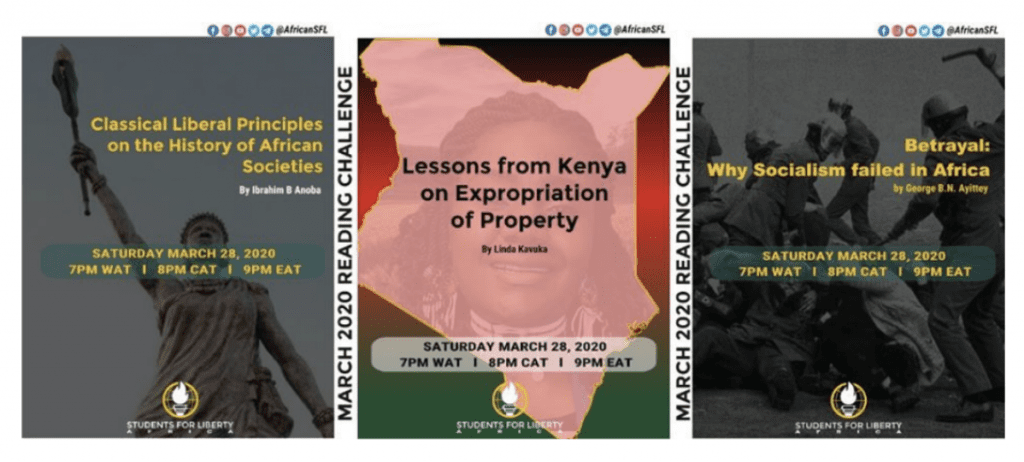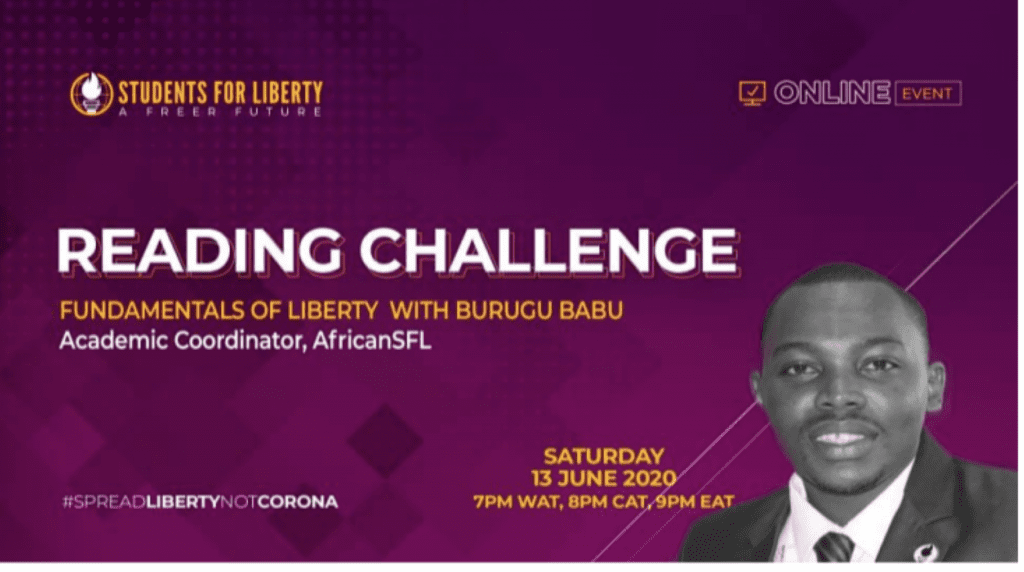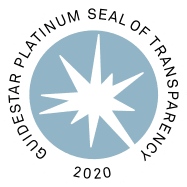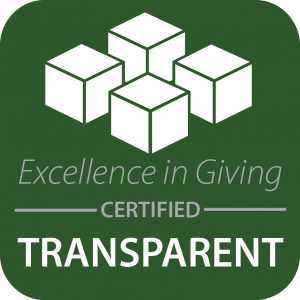A challenge is an opportunity in disguise
So many challenges are simply opportunities in disguise. When SFL first launched in Africa, widespread knowledge about the ideas of liberty just didn’t exist.
As students joined our events and signed up by the hundreds, we noticed that these ideas were completely new to most of them, and this put them behind leaders from other regions.
In order to bridge this gap and train our African volunteers to be true advocates for liberty, African SFL launched a liberty-focused reading challenge among local coordinators that would develop young people to defend the tenets of liberty.
Initially, this was a reading program in which participants would receive short articles to read and discuss later on Facebook.
Now, this is a bi-weekly program with a collection of pro-liberty reading materials and videos carefully selected to help the leaders strengthen their knowledge and become SFL ambassadors who are confident in defending their ideas to any audience.
The reading program also seeks to create a culture of discussion in local groups, and encourage volunteers to host academic events in their communities.
Educating today’s youth


Participants of the Reading Challenge are expected to:
- Read the materials and participate in discussion
- Take the challenge in a group rather than alone
- Try as much as possible to read the articles slowly over the two weeks rather than rushing through them before the discussion
- Keep a log. For example, write down the main takeaway for each article, highlight the weakest point in the author’s argument, etc.
- Organize physical book review events in your community
Recent content has included Self Control or State Control, Life in the Nanny State: How Welfare Impacts Those Who Receive It by Lisa Conyers, Rules and Order Without the State, and How Socialism Destroyed Africa. The insight on these discussion threads has been incredible.
Liberty comes alive
Here are a few of our favorite comments from recent discussions.
“I strongly believe state welfarism is a card that the government uses to play its citizens by pretending to help them, yet in the real sense it provides an avenue for those in government to continue amassing wealth to themselves.” – Collins Bigogo
“Government welfare keeps us under the control of the government. Welfare schemes allow the government to claim more rights on private property. – Ogechukwu Egwuatu
“I think the government enslaves us since we are dependent on the government for money, food, and utility facilities, and it dictates to us how we should do everything.” – Zari Grania
“I find it difficult to understand why African leaders betray the interests of our countries. They kill us in cold blood as a result of their selfish decisions, and they hunt anyone who raises a voice to remind them of this. One day Africa will be free, not from white colonialists, but free from African colonialists who colonize their citizens.” – Samwel Jankey
“I think the idea of government welfarism is rooted in a good cause, which is to help those in need, but it is simply the wrong solution to a real problem. Humans are just as productive when they are free and independent…the absence of (dignity and esteem) is exactly what makes government welfarism enslaving. Rather than give people freedom to grow, it focuses on keeping people on tight leashes, thereby stifling creativity.” – Michael Achumba
“Government programs meant to eradicate poverty usually fail at reaching the poor for several reasons, including: corruption, improper planning, wrong approach, etc. I think poverty education is tied to creating an enabling and free environment for people to create and work themselves out of poverty. As a consequence, some people may decide not to move out of it due to a dependence mindset, but that shouldn’t change the approach. Rather, these ‘defaulters’ should learn to take responsibility. That is what it means to be free.” – Michael Achumba


In our last fiscal year, ASFL did an incredible job!
We witnessed a significant improvement in the number of participants, as well as the comments made by leaders during the sessions.
We got the highest number of participants ever, which is incredibly impressive considering that these volunteers speak English, French, Arabic, and Portuguese.
A separate Francophone challenge has been launched and a Lusophone program is in the works with the help of SFL Brazil.
To read more about our student impact stories, be sure to check out our cluster page by clicking on the button below.
This piece solely expresses the opinion of the author and not necessarily the organization as a whole. Students For Liberty is committed to facilitating a broad dialogue for liberty, representing a variety of opinions.

















